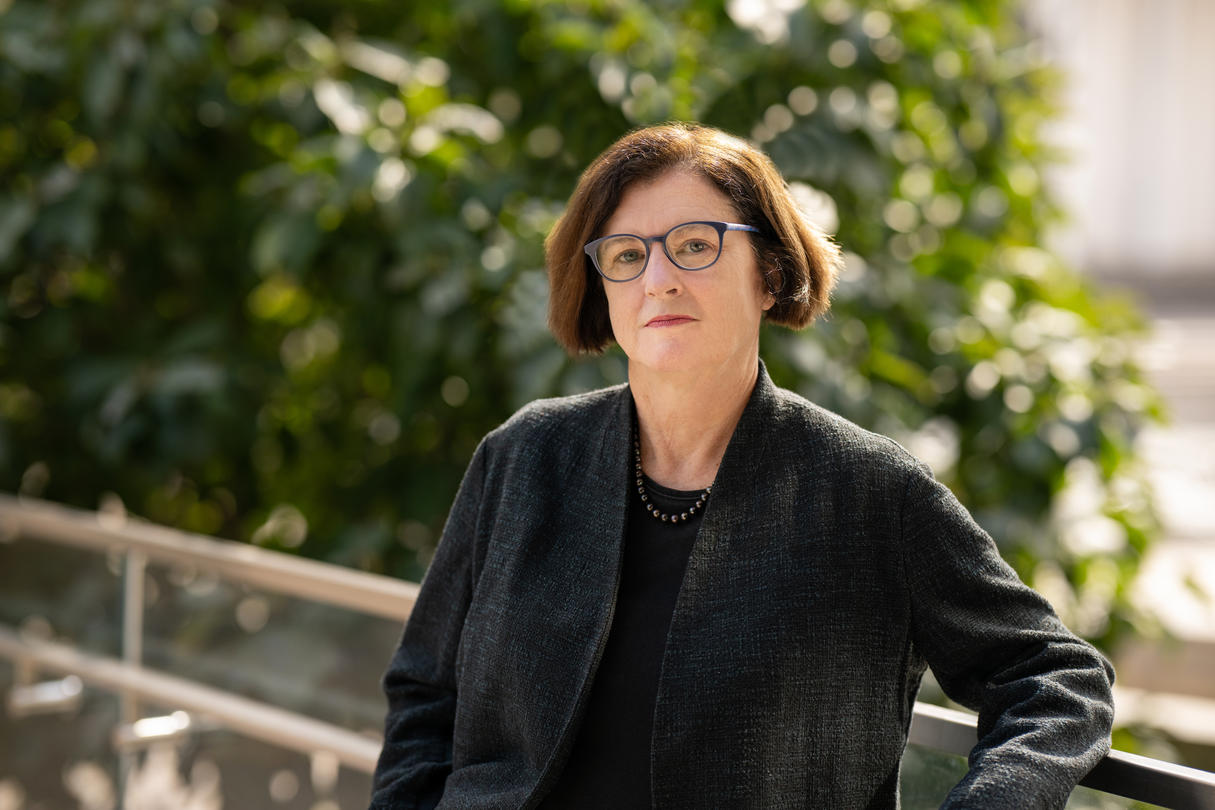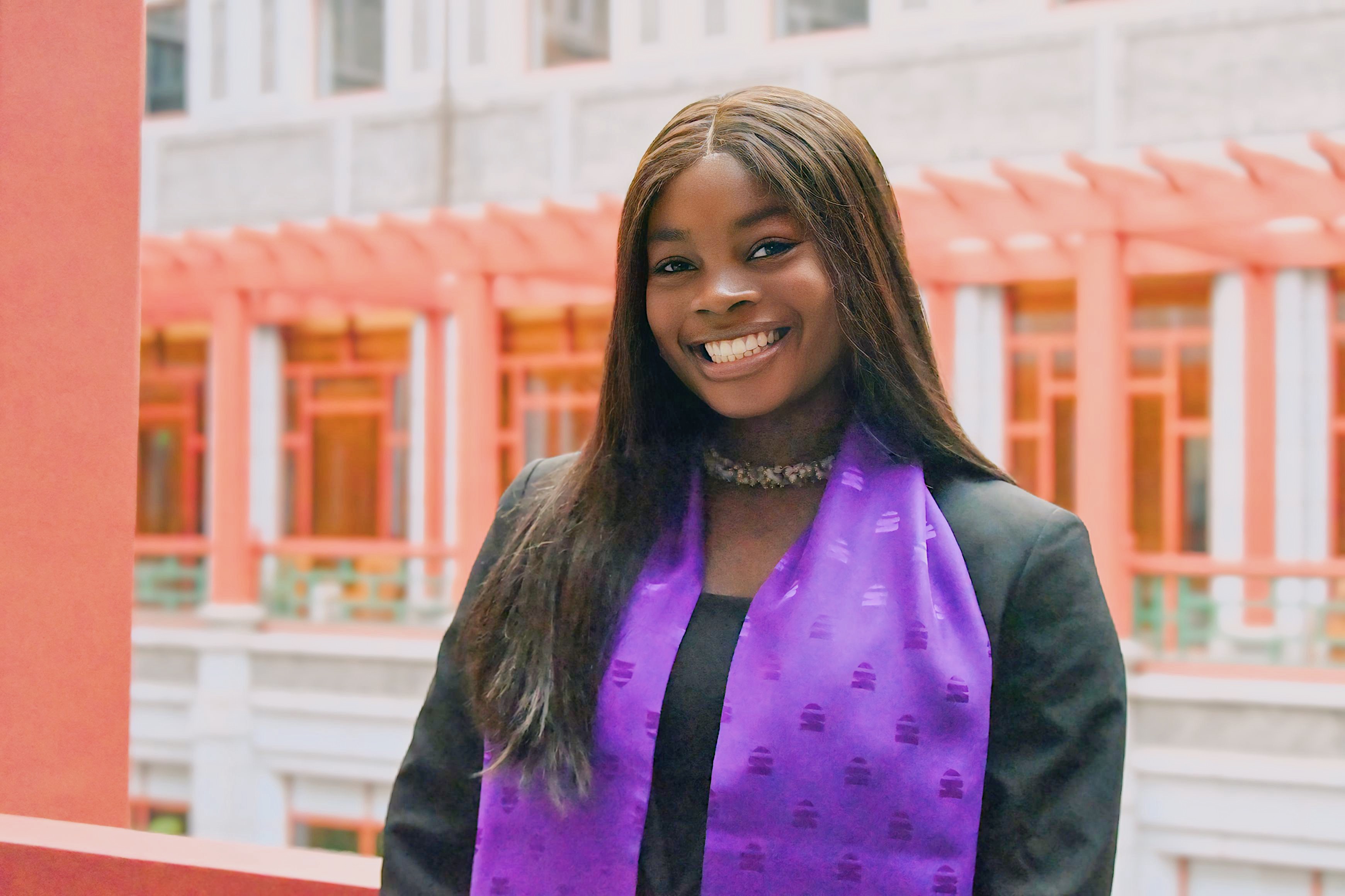In Conversation with Fellowship Advising

Fellowship Advising, a division within the Office of International Programs, assists undergraduates and recent alumni as they navigate the complex landscape of identifying and applying for fellowships, scholarships and grants, many of which support postgraduate study and research abroad. Princeton Int’l spoke with Deirdre Moloney, director, and Eric Myers, assistant director, about the lasting benefits these opportunities offer and how students can thoughtfully incorporate fellowships into their Princeton experience.
Why and when should students consider applying for fellowships?
Applying for fellowships is an excellent way to reflect on one’s undergraduate experience, clarify future professional goals and build relationships with mentors. Ideally, first-year undergraduates should be familiar with our program and our office, but most of our awards are for juniors, seniors and recent alumni. For many, early junior year is an optimal time to focus on fellowships.
What are the first steps that students should take?
Explore our website to browse the range of fellowship opportunities and identify the ones that support their interests and goals; attend information sessions to learn more about specific awards and the application process; and schedule an individual advising appointment with our office. These conversations allow us to get to know students personally, help them think strategically about fit and provide guidance on how to begin preparing strong applications.
How can students identify which fellowships align with their goals and interests?
We encourage students to reflect on their longer-term goals and to speak with faculty, peers and other mentors to identify experiences that best support their personal and professional aspirations. Many fellowships fund structured graduate degree programs, such as the Rhodes Scholarship for graduate study at Oxford University. There are also others that support projects of an applicant’s own design, in the United States or abroad. Examples include the Fulbright U.S. Student Program (study, research or teaching English in over 140 countries) and the ReachOut 56-81-06 Fellowships, which enable Princeton seniors to pursue public-interest projects during their first postgraduate year.
What makes a compelling applicant?
The fellowship foundations’ missions vary, as do their selection criteria. While many fellowships for graduate study in the U.K., including Rhodes, Marshall and Gates Cambridge, require very high GPAs, others take a more holistic approach. We advise students to meet with us to identify awards that align well with their interests and goals. Overall, a strong applicant demonstrates enthusiasm for the opportunity as well as commitment to the application process. It is also important to recognize that — regardless of outcome — the application process itself offers a valuable opportunity for self-reflection, encouraging students to clarify and articulate their goals and strengths.
Can a fellowship help an applicant in applying for jobs or graduate school?
Fellowships play an important role in career advancement and graduate school placement. During their fellowship, grantees
often receive training, mentorship and opportunities to develop their leadership, research and cross-cultural skills. Most programs, such as the Marshall and Gates Cambridge Scholarships, connect participants with mentors, alumni and professional communities that shape future professional opportunities. Because most fellowships are highly selective, earning one signals to graduate admissions committees and employers that a candidate is accomplished, motivated and capable — an important advantage in a competitive applicant pool.
How have fellowship opportunities evolved over recent years?
What trends are you seeing in types of fellowships students are pursuing today? During this time of global and domestic uncertainty, we have been experiencing a significant growth in fellowship applications. There are more options than ever and more opportunities are offered each year. The Schwarzman Scholarship, for a postgraduate experience in China, and the Knight-Hennessy award for graduate/professional study at Stanford University are two examples of newer awards that are of significant interest to seniors and recent alumni.
Recent fellowship recipients offer insight into their personal and professional growth:
 Sam Harshbarger ’24
Sam Harshbarger ’24
Sam Harshbarger ’24
Major: History
Fellowship: Rhodes Scholarship
Award: Study at the University of Oxford, currently a second-year MPhil student in
Modern European History at Balliol College
In my first meeting with my supervisor, Professor Zbig Wojnowski, we discussed potential directions for my dissertation project over tea in his office. I was filled with excitement at continuing my historical research amid the rich community of scholars working on the Soviet Union and the Cold War at Oxford. That meeting crystallized exactly why I had applied for the Rhodes Scholarship: It has provided me witha stimulating intellectual community at Oxford and deepened my conviction that studying the past remains the key to understanding present-day challenges. The methodological training and opportunities
to engage in archival work at Oxford have prepared me to write my dissertation over the academic year ahead and made me more certain of my desire to continue this work as a historian.
 Headshot of Oluwatise Okeremi ’24
Headshot of Oluwatise Okeremi ’24
Oluwatise Okeremi ’24
Major: School of Public and International Affairs (SPIA)
Fellowship: Schwarzman Scholarship Award: One-year master’s program in global affairs at Tsinghua University in Beijing
I wanted to be a Schwarzman Scholar to learn Chinese, to reflect and be surrounded by global citizens who prioritize change. I graduated from Schwarzman and Tsinghua University with new friends, journals full of notes and a vision. I am interested in the rapid economic growth in East Asia, particularly China’s growth and its relations with countries like Nigeria. Learning Yoruba, French and Korean and being immersed in the corresponding countries and cultures made me value how languages open doors for points of connection and understanding. As a Schwarzman Scholar, I went from a beginner-level Chinese speaker to navigating conversations comfortably. I decided to stay in Beijing to continue exploring China, learn more Chinese and stay connected to the community. I remained at Schwarzman College as a senior scholar (residential assistant). I work full-time at the International School of Beijing as an International Educational Leadership Fellow, serving as chief of staff to the head of school and leading a project that will bring high schoolers from around the world to study abroad in Beijing.
